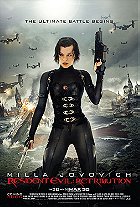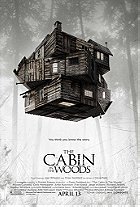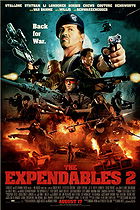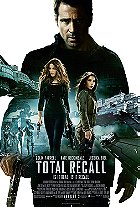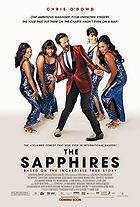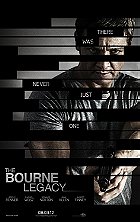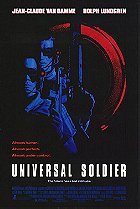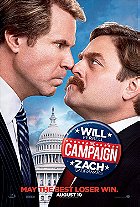Nobody should prepare to view 2012's Abraham Lincoln: Vampire Hunter under the delusion that a profound history lesson is in store for them. After all, merely reading the title is enough to spark ridicule and disbelief that people actually funded this thing. As it turns out, however, this is not the goofy, B-grade action fiesta that one would expect; writer Seth Grahame-Smith (adapting his own novel) and director Timur Bekmambetov have in fact created a predominantly straight-faced feature, aspiring to create an epic tale of revisionism as opposed to a more disposable straight-to-video offering. Unfortunately, it doesn't quite work. Abraham Lincoln: Vampire Hunter definitely has its strengths, but it's brought down by slipshod storytelling and the pedestrian nature of most of the action scenes, rendering the film an experimental curio which falls short of its potential.

As a child, Abraham Lincoln (played in adulthood by Walker) lost his mother when malicious vampire Jack Barts (Csokas) drained the life out of her. Years on, Lincoln has grown into a young man with revenge on his mind. Assisted in his vendetta by veteran vampire hunter Henry Sturges (Cooper), Lincoln begins learning the ropes of killing the undead, and vows to terminate the population of bloodsuckers who exist undetected among the living. Settling in Springfield, Lincoln works as a shopkeeper's assistant by day and vampire killer by night, driven by the thought of one day getting the opportunity to take out Jack Barts. Lincoln's life in Springfield leads him to meet and fall in love with Mary Todd (Winstead) before moving to Washington, D.C., where he enters politics and works his way up to becoming the 16th President of the United States. But his vampire hunting days are not quite behind Lincoln yet, as vampire boss Adam (Sewell) begins backing the South with bloodsuckers to help the Civil War effort and overthrow the President.
Grahame-Smith's script sticks closer to the historical record than expected, cleverly reworking key events in Lincoln's life as well as broader historical moments to suit the vampire-hunting conceit. For probably half of its 100-minute runtime, Abraham Lincoln: Vampire Hunter actually works, as it shows a surprisingly keen interest in character development intermingled with (mostly) satisfying action set-pieces. As time goes by, however, the quality of everything rapidly declines, most notably the storytelling. Mary Todd calling off her engagement to Stephen A. Douglas (Tudyk) happens without the audience, and Lincoln and Mary advance from young lovers to greying middle-aged married couple in the space of a single scene. Not much vampire business happens once Lincoln becomes President, making his presidency seem like somewhat of an afterthought. As a result, a lot of potential goes unrealised.

At the very least, it's fantastic to see vampires with actual bite here. Due to the godawful Twilight saga, vampires have become reduced to lovelorn, emo metrosexuals, but Abraham Lincoln: Vampire Hunter features frightening vampires who kill without compunction. In the early stages of the film, the vampires are genuinely creepy, giving the picture an effective spark of horror. But alas, it's not long before Timur Bekmambetov gives over to dumb, cartoonish, CGI-heavy action. At times the action scenes are exhilarating, but after a while the repetitive slo-mo routine grows wearisome. On top of this, a few set-pieces are utterly incoherent (I can't make heads or tails of the sequence when Abraham and his friends leave a vampire-filled mansion in a horse carriage). Perhaps the biggest issue with Abraham Lincoln: Vampire Hunter is that it's a confused mixture of B-grade absurdity and serious drama. It needed to settle on a consistent tone.
At the very least, Benjamin Walker is an ideal protagonist and a solid choice for Abraham Lincoln. Walker managed to nail Lincoln's gaunt, awkward demeanour as well as his charming earnestness. It's a huge benefit to have such an engaging actor to latch onto amid the troublesome storytelling. Dominic Cooper is equally good as Abe's mentor Henry. Meanwhile, Mary Elizabeth Winstead (a strangely beautiful choice for the role of Mary Todd Lincoln considering how unattractive the real woman was) is serviceable if unremarkable, and Rufus Sewell clearly relished the chance to play the vampiric antagonist Adam.

In post-production, Abraham Lincoln: Vampire Hunter was subjected to a 3-D conversion. It may make sense for this to be in 3-D due to its reliance on flashy CGI, but the image is dark and drab from behind the glasses, not to mention the 3-D effects aren't especially effective. All things considered, it's disappointing how underwhelming Vampire Hunter is. It had all the right ingredients - a great action director at the helm, Tim Burton as producer, and an R-rating - but the final product fails to take advantage of the limitless potential. It's worth seeing, but temper your expectations.
5.9/10
 Login
Login
 Home
Home 183 Lists
183 Lists 1663 Reviews
1663 Reviews Collections
Collections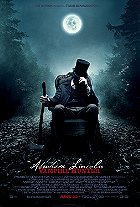
 0 comments,
0 comments, 